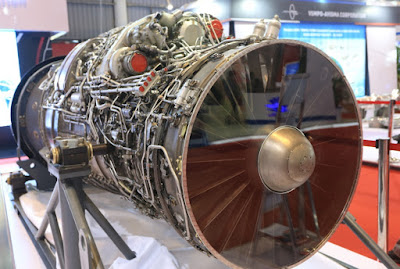The Chinese People’s Liberation Army-Air Force (PLAAF) is slated to receive the first four out of 24 Russian-made Sukhoi Su-35 multirole fighter jets, the governor of Khabarovsk Krai, a federal subject located in the Russian Far East, said in a speech during the opening of a new aircraft production plan on September 15, according to local media reports.
From 2016 to 2018 the Komsomolsk-on-Amur Aircraft Production plant will deliver 24 Su-35 combat aircraft to China, the governor said.
The Su-35 (NATO reporting name: Flanker-E) is a Fourth++ generation, twin-engine, highly maneuverable multirole fighter jet powered by two AL-117S turbofan engines. The Russian aircraft’s powerful turbofan engine is also the most likely reason why China is interested in acquiring Su-35 fighters
The most advanced Chinese-made military turbofan currently in use is the WS-10, which, however, also underperforms, according to some reports
The izdeliye 117S (AL-41F1S) is an upgrade of the AL-31F that uses technology from the AL-41F. The engine produces 142 kN (32,000 lb) of thrust in afterburner and 86.3 kN (19,400 lb) dry. It features a fan 3% larger in diameter (932 millimetres (36.7 in) versus 905 millimetres (35.6 in)), advanced high- and low-pressure turbines, an all-new digital control system, and provisions for thrust-vectoring nozzles similar to the AL-31FP.
From 2016 to 2018 the Komsomolsk-on-Amur Aircraft Production plant will deliver 24 Su-35 combat aircraft to China, the governor said.
The Su-35 (NATO reporting name: Flanker-E) is a Fourth++ generation, twin-engine, highly maneuverable multirole fighter jet powered by two AL-117S turbofan engines. The Russian aircraft’s powerful turbofan engine is also the most likely reason why China is interested in acquiring Su-35 fighters
 |
| AL-117S Engine |
The most advanced Chinese-made military turbofan currently in use is the WS-10, which, however, also underperforms, according to some reports
The izdeliye 117S (AL-41F1S) is an upgrade of the AL-31F that uses technology from the AL-41F. The engine produces 142 kN (32,000 lb) of thrust in afterburner and 86.3 kN (19,400 lb) dry. It features a fan 3% larger in diameter (932 millimetres (36.7 in) versus 905 millimetres (35.6 in)), advanced high- and low-pressure turbines, an all-new digital control system, and provisions for thrust-vectoring nozzles similar to the AL-31FP.




No comments:
Post a Comment